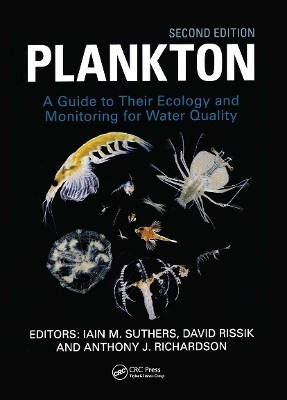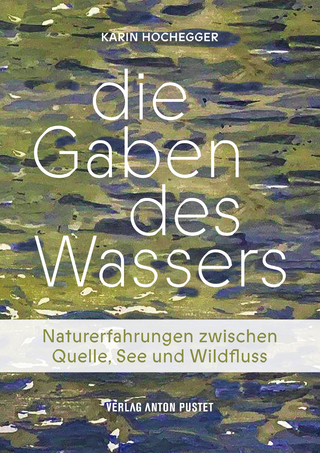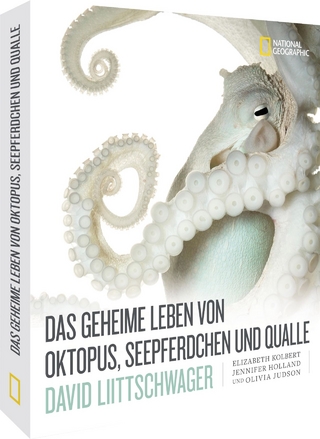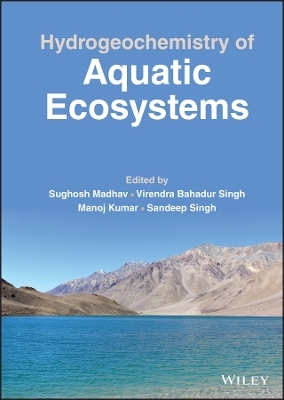
Plankton
CRC Press (Verlag)
978-0-367-03016-2 (ISBN)
This Second Edition of Plankton is a fully updated introduction to the biology, ecology and identification of plankton and their use in monitoring water quality. It includes expanded, illustrated descriptions of all major groups of freshwater, coastal and marine phytoplankton and zooplankton and a new chapter on teaching science using plankton. Best practice methods for plankton sampling and monitoring programs are presented using case studies, along with explanations of how to analyse and interpret sampling data.
Healthy waterways and oceans are essential for our increasingly urbanised world. Yet monitoring water quality in aquatic environments is a challenge, as it varies from hour to hour due to stormwater and currents. Being at the base of the aquatic food web and present in huge numbers, plankton are strongly influenced by changes in environment and provide an indication of water quality integrated over days and weeks. Plankton are the aquatic version of a canary in a coal mine. They are also vital for our existence, providing not only food for fish, seabirds, seals and sharks, but producing oxygen, cycling nutrients, processing pollutants, and removing carbon dioxide from our atmosphere. This new edition:
contains a new chapter on Plankton in the Classroom
has greatly expanded coverage of coastal and marine phytoplankton
explains the role of plankton in aquatic ecosystems and its usefulness as a water quality indicator
updates and details best practice in methodology for plankton sampling and monitoring programs
brings together widely-scattered information on freshwater and coastal phytoplankton and zooplankton and provides a list of up-to-date references.
Plankton is an invaluable reference for teachers and students, environmental managers, ecologists, estuary and catchment management committees, and coastal engineers.
Iain M. Suthers is a marine scientist at the University of New South Wales and the Sydney Institute of Marine Science, specialising in the ecology of plankton and larval fish. Over the past few decades he has led or participated in many research voyages focused on the East Australian Current. David Rissik works as a consultant for BMT and has an adjunct position with the Australian Rivers Institute and the National Climate Change Adaptation Research Facility at Griffith University. He has worked in the areas of coastal zone management, monitoring and reporting on water quality and ecosystem health of estuarine and coastal systems, social-ecological systems, and climate change risk and climate adaptation. Anthony J. Richardson is a mathematical ecologist at the University of Queensland and CSIRO Oceans and Atmosphere. Anthony was captivated with plankton during his PhD and now runs an Australia-wide plankton monitoring survey. His research modelling marine ecosystems and analysing plankton datasets brings his passions for biology and mathematics together.
1. The importance of plankton. 2. Plankton processes and the environment. 3. Plankton-related environmental and water quality issues. 4. Sampling methods for plankton. 5. Freshwater phytoplankton: diversity and biology. 6. Coastal and marine phytoplankton: diversity and ecology. 7. Freshwater zooplankton: diversity and biology. 8. Coastal and marine zooplankton diversity and biology. 9. Plankton in the classroom.
| Erscheinungsdatum | 02.03.2019 |
|---|---|
| Verlagsort | London |
| Sprache | englisch |
| Maße | 198 x 270 mm |
| Gewicht | 1054 g |
| Themenwelt | Naturwissenschaften ► Biologie ► Limnologie / Meeresbiologie |
| Weitere Fachgebiete ► Land- / Forstwirtschaft / Fischerei | |
| ISBN-10 | 0-367-03016-0 / 0367030160 |
| ISBN-13 | 978-0-367-03016-2 / 9780367030162 |
| Zustand | Neuware |
| Haben Sie eine Frage zum Produkt? |
aus dem Bereich


